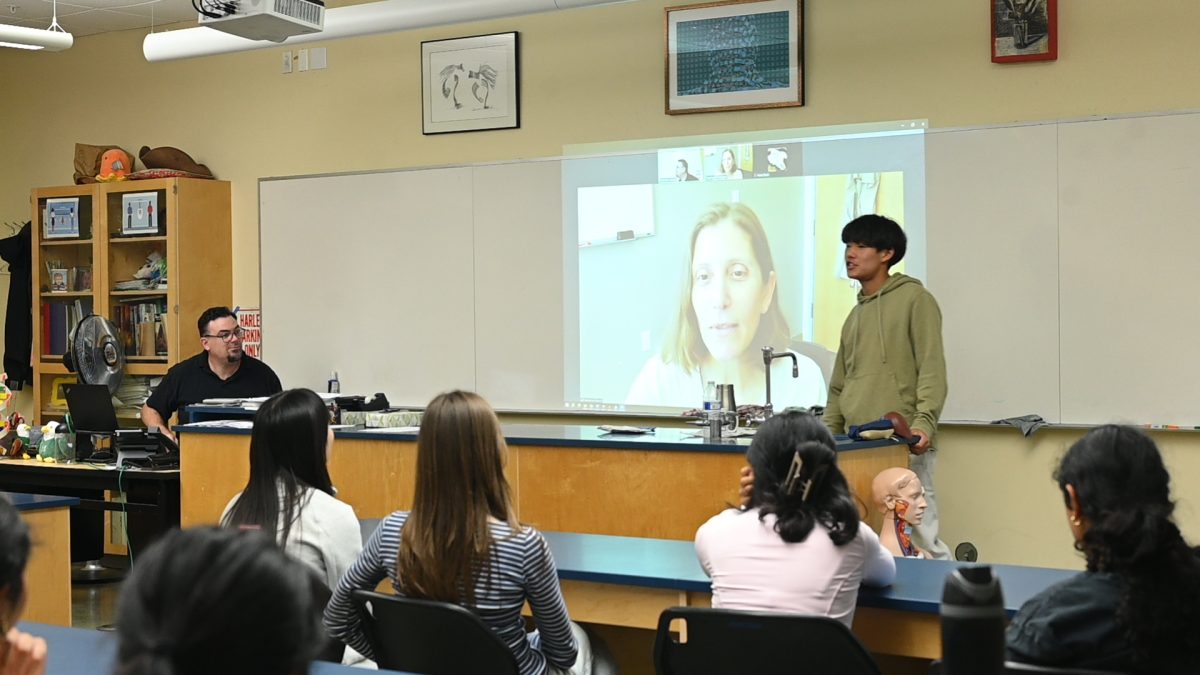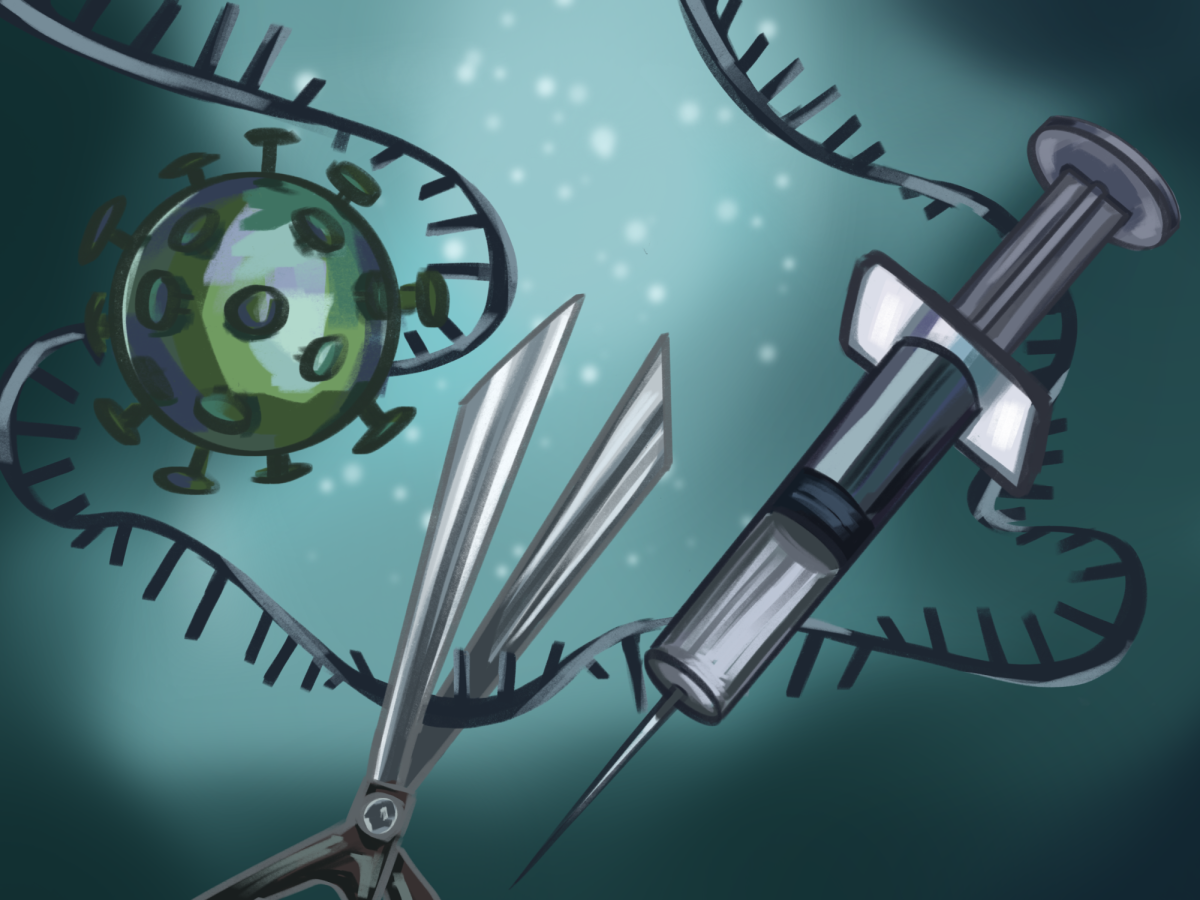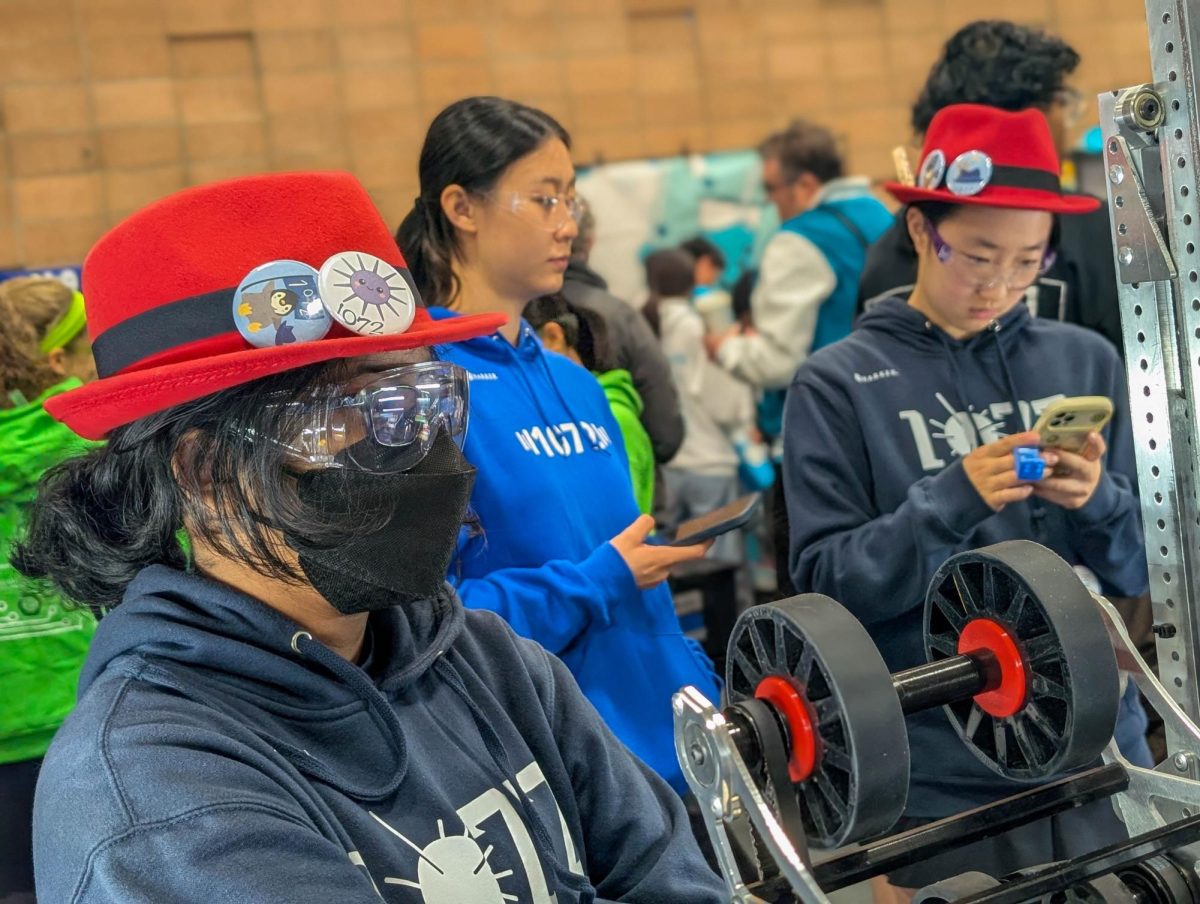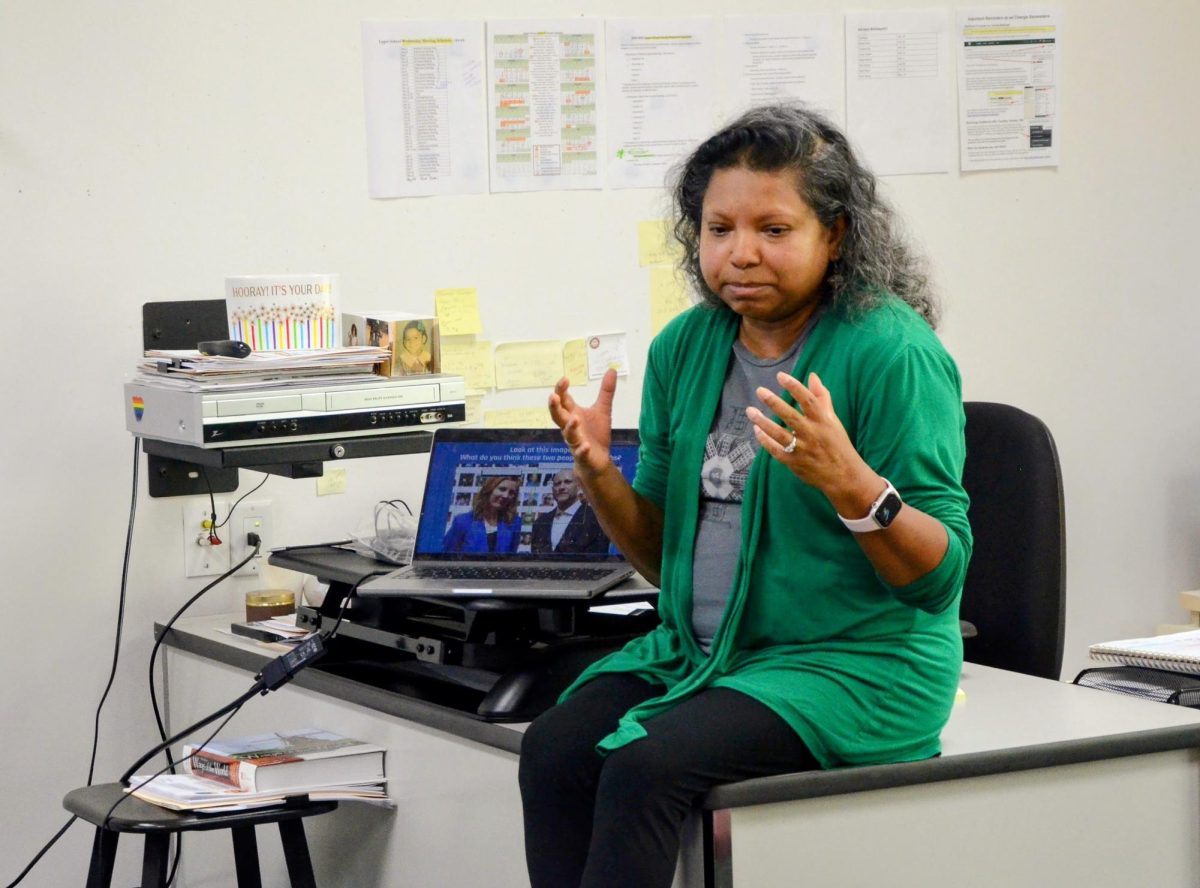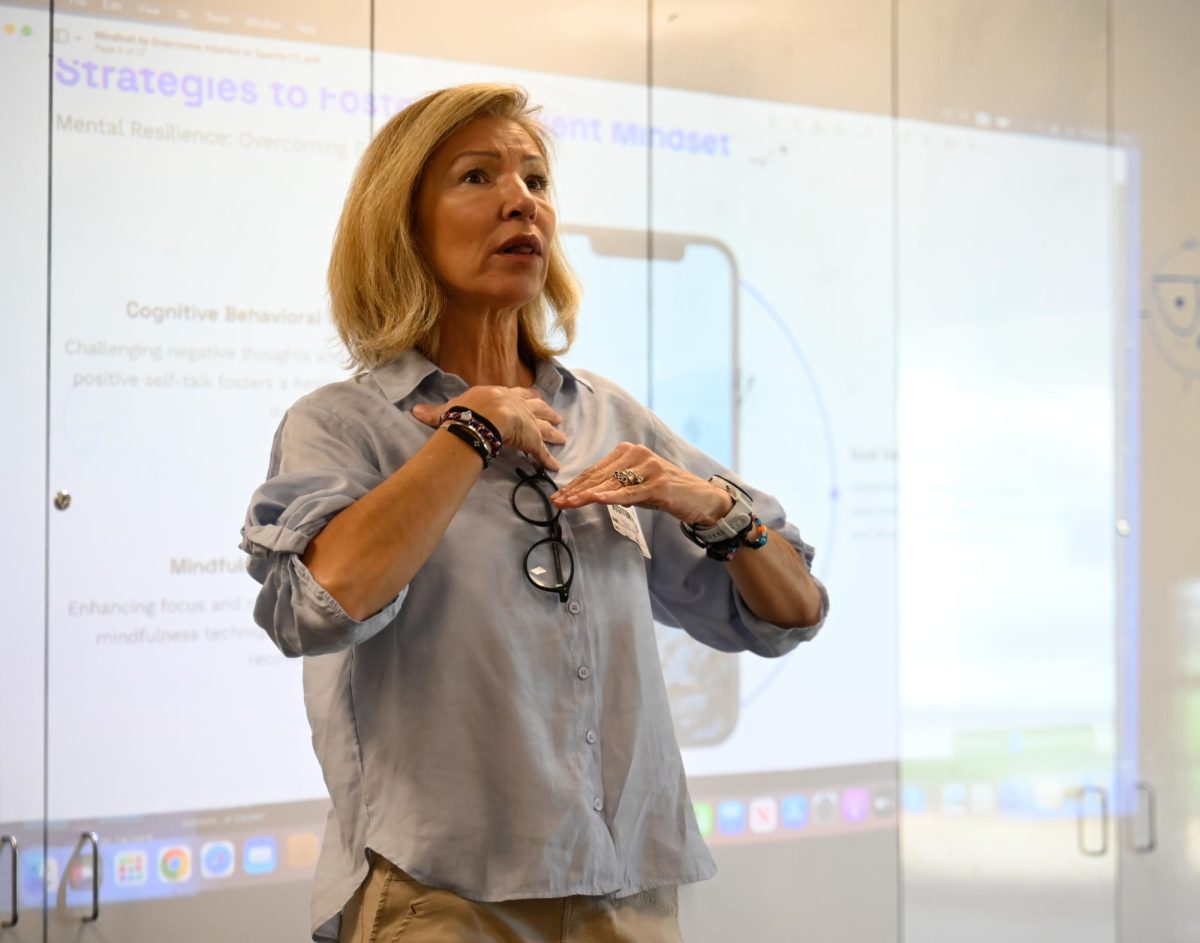Public Health Club members played the video game Plague Inc. to learn about the effects and properties of infectious diseases on Jan. 23.
In the three-leveled Plague Inc., students acted as a bacteria or virus with the goal of infecting and killing the entire world population. The game introduced club members to the origins behind deadly illnesses and how scientists create vaccines to mitigate them.
Vice Presidents of Internal Affairs Terry Xie (11) and Ritisha Chakravarty (10) navigated through the game options, and club members offered their own suggestions. Players picked a starting location for their pathogen, which they named “Harkerrea.” When Harkerrea infected more people around the globe, the disease gained DNA points, which the students used to buy symptoms, transmission techniques and other perks to level up their disease.
“The game was actually pretty interesting—it’s surprisingly advanced in a way that conveys scientific ideas about spreading diseases,” Terry said. “By trying to spread the disease you can see what causes them to spread and then think about ways to counter that.”
Bars at the bottom of the game screen indicated the lethalness, contagiousness and the amount of people infected or killed by Harkerrea. Club members strategized spending DNA points on the characteristics of air transmission to increase the dissemination of their bacteria, symptoms like total organ failure to increase death rates and genetic strengthening to avoid antibiotic developments.
From his background in medical history, Kelly proposed methods to improve the deadliness of their disease to help win the game. Moreover, he emphasized the importance of considering human response to mutations.
“I didn’t expect this to be so scientific and interesting to play [with] the idea that you would get to choose your evolution and take some liberties with how evolution works,” Kelly said. “But it was interesting to say we’re gonna put points into this strategy or when we are going to evolve antibacterial resistance or different symptoms.”
Public Health Club hopes to promote innovations and novel thinking to solve healthcare crises by understanding how diseases develop their characteristics.

Secretary Abby Wang (10) emphasized the importance of promoting public health ever since the COVID-19 pandemic.
“The best way to spread public health messages is with something really accessible and engaging to a lot of people, so this could model how many viruses mutate and evolve and infect people in a lot of different ways,” Abby said. “We saw how symptoms and mortality aren’t exactly correlated to the infection rate of the disease, but both of them are really important to control when you’re trying to fight or decrease the risks of certain diseases from spreading.”




![LALC Vice President of External Affairs Raeanne Li (11) explains the International Phonetic Alphabet to attendees. "We decided to have more fun topics this year instead of just talking about the same things every year so our older members can also [enjoy],” Raeanne said.](https://harkeraquila.com/wp-content/uploads/2025/10/DSC_4627-1200x795.jpg)


















![“[Building nerf blasters] became this outlet of creativity for me that hasn't been matched by anything else. The process [of] making a build complete to your desire is such a painstakingly difficult process, but I've had to learn from [the skills needed from] soldering to proper painting. There's so many different options for everything, if you think about it, it exists. The best part is [that] if it doesn't exist, you can build it yourself," Ishaan Parate said.](https://harkeraquila.com/wp-content/uploads/2022/08/DSC_8149-900x604.jpg)




![“When I came into high school, I was ready to be a follower. But DECA was a game changer for me. It helped me overcome my fear of public speaking, and it's played such a major role in who I've become today. To be able to successfully lead a chapter of 150 students, an officer team and be one of the upperclassmen I once really admired is something I'm [really] proud of,” Anvitha Tummala ('21) said.](https://harkeraquila.com/wp-content/uploads/2021/07/Screen-Shot-2021-07-25-at-9.50.05-AM-900x594.png)







![“I think getting up in the morning and having a sense of purpose [is exciting]. I think without a certain amount of drive, life is kind of obsolete and mundane, and I think having that every single day is what makes each day unique and kind of makes life exciting,” Neymika Jain (12) said.](https://harkeraquila.com/wp-content/uploads/2017/06/Screen-Shot-2017-06-03-at-4.54.16-PM.png)








![“My slogan is ‘slow feet, don’t eat, and I’m hungry.’ You need to run fast to get where you are–you aren't going to get those championships if you aren't fast,” Angel Cervantes (12) said. “I want to do well in school on my tests and in track and win championships for my team. I live by that, [and] I can do that anywhere: in the classroom or on the field.”](https://harkeraquila.com/wp-content/uploads/2018/06/DSC5146-900x601.jpg)
![“[Volleyball has] taught me how to fall correctly, and another thing it taught is that you don’t have to be the best at something to be good at it. If you just hit the ball in a smart way, then it still scores points and you’re good at it. You could be a background player and still make a much bigger impact on the team than you would think,” Anya Gert (’20) said.](https://harkeraquila.com/wp-content/uploads/2020/06/AnnaGert_JinTuan_HoHPhotoEdited-600x900.jpeg)

![“I'm not nearly there yet, but [my confidence has] definitely been getting better since I was pretty shy and timid coming into Harker my freshman year. I know that there's a lot of people that are really confident in what they do, and I really admire them. Everyone's so driven and that has really pushed me to kind of try to find my own place in high school and be more confident,” Alyssa Huang (’20) said.](https://harkeraquila.com/wp-content/uploads/2020/06/AlyssaHuang_EmilyChen_HoHPhoto-900x749.jpeg)






